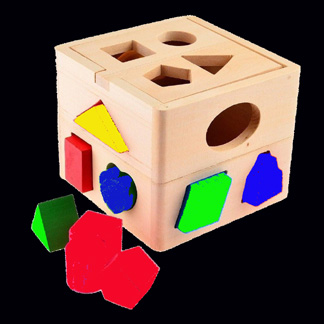Object
-

What is an Object?
February 20, 2013 at 4:37pmThe difference between a heart and love
I. What is an object?
It would seem that the difference between love and a heart would be so obvious that people wouldn't even debate the issue. However, in this day and age the great majority of people can't tell the difference. Thay's how far humans have come in their collective dementia. The great majority of people cannot distinguish between objects and concepts.
Physics deals only with objects. In Physics, we must have an object for else there would be nothing to study, nothing to perform activities or motion. Only an object can serve as a noun in a sentence of Physics and perform actions. We can say that a heart jumped. We cannot say that love jumped. The word "love" can never be a noun for the purposes of Physics. It cannot serve as the subject of a sentence. It is irrational to place an article such as "the" or "a" in front of love and say "The love that I had" or "A silly love". And here we distinguish between ordinary speech and scientific language. In poetry everything is allowed, from analogy to metaphor to parable. In Physics, the sentence is taken literally. For instance, there is nothing wrong with saying "Love moves mountains" in ordinary speech. It is irrational to say the same sentence in the context of a scientific presentation.
Therefore, there is an obvious qualitative difference between heart and love and we need to zero in on what that difference is. We need to come up with a broad definition of the category "objects" which at the same time only permits the introduction of genuine objects into Physics.
It is also imperative to distinguish between concepts and objects and not end up moving concepts or having them perform actions in the course of a scientific dissertation. We have to define the strategic category "objects" in such a way as to exclude concepts. The more conditions we put in our definition, the harder it will be to exclude certain words that are borderline.
object: that which has shape
(Synonyms: thing, something, anything, entity, substance, medium, mediator, physical, architecture, body)
The word "object" is a static concept. If a word exhibits or embodies any sign of motion or activity, it is automatically eliminated from the list of objects. In Physics, noun, subject and object are synonyms.
This definition summarily excludes words heretofore assumed to be actors in Physics, to wit: energy, mass, matter, force, time, field, charge, plasma, wave, wave-packet, vortex, electricity, charge, Universe, and space.
II. Shape
The devil's advocate will attempt to show that all words are founded upon other words and, thus, we end up with endless iteration. His goal is to show that we cannot define any word unambiguously (i.e., scientifically) so that he can continue with whatever definition suits his arguments.
We begin by stating that there is no skeptic who doesn't have is own theory and this despite any denials. By definition, a skeptic is an individual who has a different idea and doesn't like the one he is hearing. The same applies to a devil's advocate who attempts to debunk this definition of "object". He is tacitly or explicitly going to have another notion of what an object is. For instance, the most popular definition of "object" in the dictionary of ordinary speech is "that which we can see or touch". Another popular definition is "that which has mass or volume". We can also decide to define "object" as "that which has location or moves or can move". Do we need to have an unambiguous definition of see, touch, mass, volume, location or motion in order to resolve this issue?
Clearly we don't. The imprecise definitions of ordinary speech will do. What is at stake is not what is the rigorous definition of see or touch. What is at stake is the criterion that we're going to use to define the word "object". We have to choose whether we are going to use: see, touch, mass, volume, location, motion or shape. For this we do not need to know the super duper perfect definition of any of these words. We just need to know which of these criteria we're going to invoke to define the word "object".
In Science, we do not define every word in the dictionary just to please the grumbling devil's advocate or skeptic. We define scientifically only those words that make or break our theories or that are in dispute for some reason. There has to be a justification to define a word scientifically. And here it is obvious that the devil's advocate is simply a sore loser bent on derailing the foundations at all costs. Why didn't he ask you to define "that", "which" or "has"? Why did he pick on "shape"? Are the meanings of "that", "which" and "has" perfectly understood? In fact, as it turns out, it is much harder to define such words than a concept such as shape. Every person has an intuitive notion of what shape is. Very few people can define "that", "which" or "has" without doing a minimum of research.





